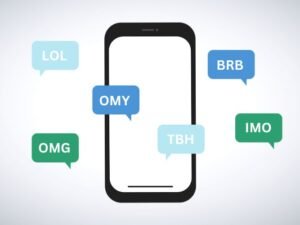If you’re a coffee enthusiast recovering from a tooth extraction, you might wonder when you’ll be able to enjoy your coffee again. Tooth extractions can be a daunting experience, and it is natural to have concerns about what you can eat and drink afterward. One of the most common questions that arise after the procedure is, “Can I drink coffee after tooth extraction?”
In this blog, we’ll cover everything you need to know about coffee consumption after a tooth extraction, along with some post-extraction care tips to ensure a smooth recovery. Let’s ease your concerns and guide you through the process step-by-step.
Why is Post-Extraction Care Important?
Proper care is essential after tooth extraction to promote healing and avoid complications. The area where the tooth was removed needs time to form a clot, a key part of the healing process. Without this clot, you risk developing a painful condition familiar as a dry socket, which can delay healing and cause discomfort.
So, while it may seem tempting to return to your daily routine (and coffee), it’s important to follow your dentist’s instructions to ensure everything heals properly.
Can I Drink Coffee Right After Tooth Extraction?

In the first 24 to 48 hours after your tooth extraction, it’s best to avoid drinking coffee—especially hot coffee. The reason behind this is twofold:
Hot beverages can dissolve the clot: Drinking coffee or any other hot beverage can increase the temperature in your mouth and disrupt the blood clot that forms in the extraction site. If this clot is dislodged, it can lead to a painful condition named dry socket, which not only prolongs healing but also causes significant discomfort.
Caffeine may cause bleeding: Caffeine can stimulate blood flow, which might increase the risk of bleeding from the extraction site.
Coffee Alternatives in the First 48 Hours
Instead of coffee, consider sticking to cold or lukewarm drinks during the first 48 hours. Some safe options include:
- Water
- Lukewarm herbal teas
- Smoothies (without a straw)
- Milk or non-dairy milk options
These alternatives will help keep you hydrated without risking your recovery.
When Can You Safely Drink Coffee Again?
The timeline for safely drinking coffee varies depending on individual recovery, but generally, it’s advised to wait at least 48 hours before reintroducing coffee into your diet. Even then, it’s important to take a cautious approach.
Here are a few tips for reintroducing coffee:
- Start with lukewarm coffee: To be on the safe side, start with coffee that is warm rather than hot. This reduces the risk of disturbing the blood clot while allowing you to enjoy your drink.
- Watch for signs of irritation: If you experience heightened sensitivity, swelling, or bleeding, stop drinking coffee and give your mouth more time to heal.
It’s always a good idea to consult with your dentist before resuming coffee. They can provide personalized advice based on how well your extraction site is healing.
How Coffee May Affect Healing
Although coffee can be a comforting part of your daily routine, it’s important to be mindful of how it might affect your recovery after tooth extraction.
Potential Effects of Coffee:
- Dehydration: Coffee is a diuretic, which can lead to dehydration. Dehydration can slow down the healing procedure, so it’s crucial to balance your coffee consumption with plenty of water.
- Stimulation of bleeding: Caffeine can potentially increase blood pressure, which might cause the extraction site to bleed more than it should during the healing phase.
In summary, when you do start drinking coffee again, make sure you stay hydrated and pay attention to how your mouth feels.
What to Drink and Eat After Tooth Extraction
Apart from coffee, general dietary guidelines are essential after tooth extraction to promote healing. Your mouth will be sensitive, and specific food and drinks can help or hinder your recovery.
Safe Foods and Drinks After Tooth Extraction:

- Soft foods like mashed potatoes, yogurt, or applesauce
- Lukewarm soups or broths
- Smoothies (without using a straw to avoid suction)
- Lukewarm teas or cold beverages like water and milk
Foods and Drinks to Avoid:
- Hot beverages like coffee or tea (until cleared by your dentist)
- Spicy or acidic foods
- Crunchy or hard foods like chips or nuts
- Carbonated drinks and alcohol
- Using straws, which can create suction and dislodge the blood clot
By sticking to soft, cool foods and beverages, you can help your teeth heal faster and avoid complications.
General Tips for a Smooth Recovery
Following these simple steps can make your recovery after tooth extraction much smoother:
- Avoid vigorous rinsing: While it’s important to keep your mouth clean, avoid rinsing too vigorously for the first 24 hours. A gentle saltwater rinse after the initial period can help keep the extraction site clean.
- Stay hydrated: Drink sufficient water to keep yourself hydrated and aid in healing. Avoid sugary or carbonated drinks that can irritate the extraction site.
- Keep your head elevated: When sleeping or resting, keep your head elevated to reduce swelling and avoid excessive bleeding.
- Avoid smoking: Smoking can significantly delay healing and increase the risk of dry sockets. If possible, avoid smoking for at least a few days after the procedure.
Following these general tips can help you avoid complications and return to your routine—including your favorite coffee—sooner.
Conclusion
In conclusion, while it may be tempting to return to your regular coffee routine right away, it’s essential to give your body time to heal after a tooth extraction. By waiting 48 hours and following the post-care instructions provided by your dentist, you can easily enjoy coffee without risking complications like dry sockets.
Remember, start with lukewarm coffee, stay hydrated, and monitor how your mouth feels as you reintroduce coffee into your routine. Most importantly, follow your dentist’s advice for a smooth recovery.
Soon enough, you’ll be sipping on your favorite brew without a worry!








